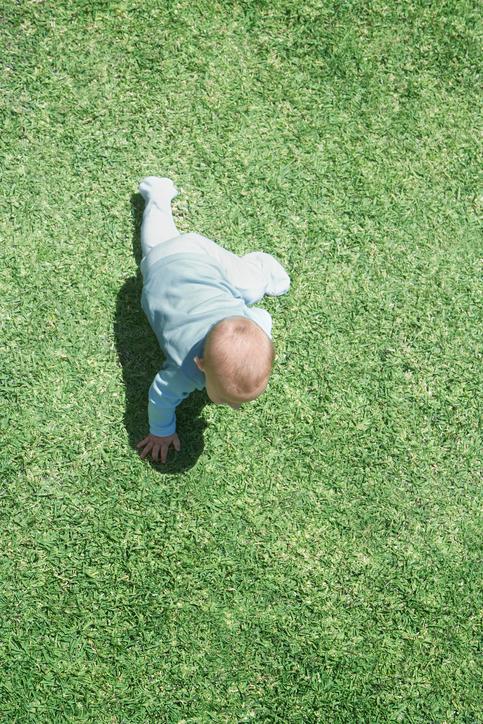Do Babies Know Something We Don't About Grass? Why Do They Avoid It?
Published May 22 2023, 5:18 p.m. ET
It's often said that babies and dogs are two of the best judges of character, and their antics are more than just something that we gush over through viral videos or memes online. Babies can also teach us things through their behaviors alone, and their behaviors have been studied on a psychological level for decades. Different theories, tests, forms of research, and case studies have used babies as key players.
Because babies are not yet at the point where they are able to fully communicate, inferences can be made through body language, facial expression, and other indicators of what the baby may be thinking. While no two babies are completely alike, there are patterns that people can recognize when it comes to common behaviors. One viral video suspects that a baby actively avoiding grass may be a sign of something more. But why do babies avoid grass?
Why do babies avoid grass?
Twitter user @Hana721107 uploaded a viral video that has since been making its rounds across the platform. In the video, barefoot babies are seen actively avoiding stepping on grass but have no issue making contact with other surfaces.
The video compiles multiple instances of curious behavior, where many babies either cross their legs or stretch them out to keep their feet away from the grass below. Each baby is seen in a different scenario but acts the same.
Why do babies avoid grass? The peculiar reaction to grass isn't as much of a cautionary tale as some may like to believe. Parents shares the scientifically-rooted reason, and it makes perfect sense. "The prickly texture and feel of grass are far different [from the] softer and more comfortable feeling of carpet, tile, and wood surfaces on their feet, hands, and body, so babies are often scared of it," pediatrician Gina Posner, M.D. said.
Fatherly chimes in on the conversation to mention that for babies, the texture of grass can be considered as a sensory overload. The development rate of a baby's nervous system makes them all the more vulnerable to foreign sights, sounds, smells, or tastes; grass has been said to trigger a more extreme reaction by underdeveloped nervous systems.
There's another hypothesis as to why babies avoid grass.
A Yale study recorded how babies responded to a variety of objects, including everyday plants that they would come in contact with. Throughout the experiment, it was noted that babies are more hesitant to touch plants and said this response was seen in babies as young as eight months old.
It was said that a baby's aversion to grass could have been an ancestral instinct to avoid any potential risk of poison. Even though humans have adapted, that caution is still hard-wired into our brains.
If you're worried about your baby insisting that they don't come in contact with grass, fear not. While it may appear to be a quirky trait, babies avoiding grass is more than just an Instagrammable moment. It could be a testament to their instincts that have been fine-tuned to keep humans alive for centuries or prove that they're on the right track for healthy neurological development.

